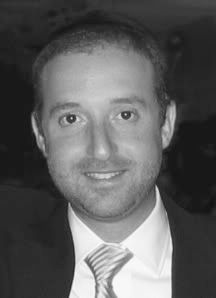 There are a few common questions one is asked at a job interview. Other than the basic “why should I hire you”, there is a potentially self destructive question which is: “What is your greatest weakness?” There are a few ways to answer this question, but one could take a pointer from this week’s Parasha.
There are a few common questions one is asked at a job interview. Other than the basic “why should I hire you”, there is a potentially self destructive question which is: “What is your greatest weakness?” There are a few ways to answer this question, but one could take a pointer from this week’s Parasha.After the completion of the Mishkan, the Torah discusses the laws of the Cohanim and their Avodah and duties. Tazria starts with the laws of Tumah and Taharah specifically regarding a woman who has just given birth to a child. (Taharah - very loosely translated as “purity”, but for our sake, let us use the term “a perfected spiritual status. Tumah is the opposite.) Why does the start to identify the concept of spiritual imperfections with a woman who has just given birth? Why does this information come right after the laws of the Cohanim?
The tasks of the Cohanim took place in the Mishkan and Temple, a place which is strongly represented by spiritual and physical perfection. The Cohanim themselves became ambassadors of this type of perfection. Wherever the people encountered afflictions of spiritual imperfection, the Cohanim were the first on site to asses the damage. However, no matter how much man and woman may strive for such perfection in life, they are wired with the most imperfect stage of all living creatures, the inability to live forever. Death. God is perfect and eternal, man isn’t. Since the Mishkan represents that level of eternal perfection and life, the Cohanim themselves can only be attached to life and the living. It is therefore prohibited for them to come into contact with the ultimate imperfection; The death of human beings.
When does this blatant physical limitation of man and woman begin? At childbirth. The woman and more specifically, the mother of a child, gives life to an amazing being who has the potential for spiritual and intellectual perfection, of cleaving to God and Torah, but at the same time the paradoxical countdown to his ultimate physical imperfection starts ticking as well.
So, when your potential employer asks you on the interview “What is your greatest weakness?” you can respond by saying “one hopes to live life, grow, learn about oneself, about life and the universe while trying connect every experience with Hashem, but as a human being, my greatest weakness is life itself.You might not receive a call back, but if they say “we’ll call you”, just tell them “Thanks. But call me back soon.”
No comments:
Post a Comment